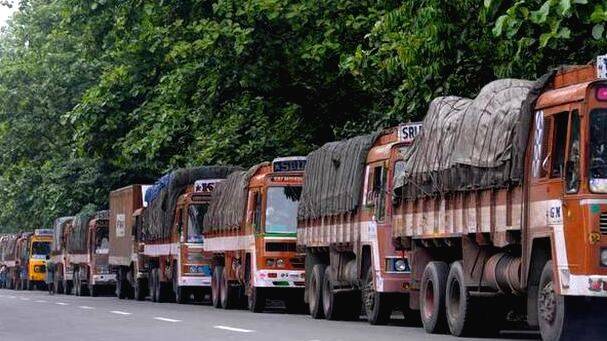

An inventive method has been devised by the staff at the Walayar check post to conceal bribe money and it indeed carries an amusing element. By rolling up banknotes and affixing them to a magnet, which is then discreetly placed behind an iron door, these funds can evade easy detection by inspectors. The magnet is positioned so that it can be swiftly hidden elsewhere when necessary. In a time when concerns about the ‘harassment’ of vigilance inspectors are on the rise, those inclined towards accepting bribes are exploring various innovative tactics like this.
These observations stem from collective brainstorming sessions, as the absence of fresh stratagems to conceal money would inevitably lead to exposure during vigilance inspections. A recent incident yielded the discovery of approximately 13,000 rupees in unaccounted currency during one such inspection strongly suggesting it to be bribe money. Aware of the ever-looming possibility of vigilance inspections, these individuals are transferring their ill-gotten gains to secure locations. Hence, the sum recovered appears to be a mere fraction of the total.
Five years ago, the implementation of the Goods and Services Tax (GST) Act across the nation marked the end of an era for check posts. The closure of significant loopholes for tax evasion streamlined the movement of goods nationwide presenting a key advantage of the GST. Nevertheless, the avenue for extorting bribes from freight vehicles passing through these check posts hasn't entirely vanished. The prolonged waiting times of the past are no longer necessary. While check posts have made strides towards shedding bureaucratic hurdles, they are not entirely liberated. Individuals transporting legitimate goods encounter no issues in crossing the check post, yet not all fall into this category. Those involved in overloading and smuggling continue to resort to bribery to officials.
The check post system still demands reform. Contemporary mechanisms must be implemented at all check posts to facilitate efficient inspections of goods and more. Alongside routine examinations, spot checks should be introduced, a measure that would undoubtedly curtail corruption at these points. The evasion of GST payments remains a concern for the finance department as recently evidenced by the recovery of 800 crore rupees in evaded taxes. Those in authoritative positions must exercise strong vigilance to prevent the leakage of tax revenue intended for the exchequer. Stringent actions ought to be taken against any instances of misconduct uncovered at the check posts.